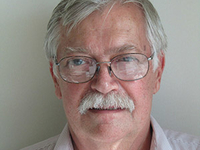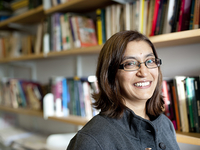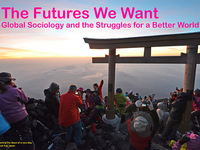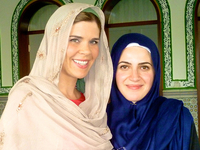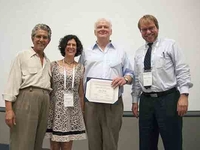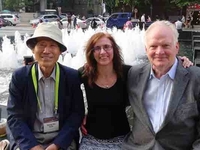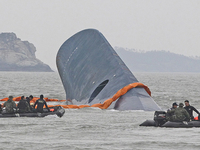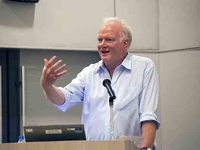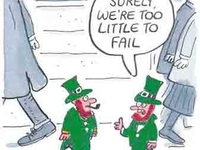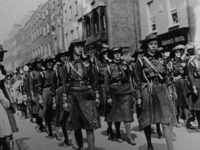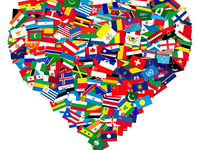GD 5.2 - June 2015
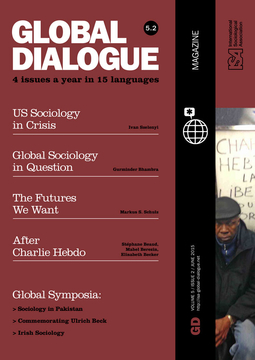
Global Dialogue is available in multiple languages!
Select the language to download the issue.
Editors:
Michael Burawoy.
Associate Editor:
Gay Seidman.
Managing Editors:
Lola Busuttil, August Bagà.
Consultants:
Ana Villarreal.
Media Consultant:
Gustavo Taniguti, José Reguera.
Consulting Editors:
Margaret Abraham, Markus Schulz, Sari Hanafi , Vineeta Sinha, Benjamin Tejerina, Rosemary Barbaret, Izabela Barlinska, Dilek Cindoğlu, Filomin Gutierrez, John Holmwood, Guillermina Jasso, Kalpana Kannabiran, Marina Kurkchiyan, Simon Mapadimeng, Abdul-mumin Sa’ad, Ayse Saktanber, Celi Scalon, Sawako Shirahase, Grazyna Skapska, Evangelia Tastsoglou, Chin-Chun Yi, Elena Zdravomyslova.
REGIONAL EDITORS
Arab World: Sari Hanafi , Mounir Saidani.
Brazil: Gustavo Taniguti, Andreza Galli, Renata Barreto Preturlan, Ângelo Martins Júnior, Lucas Amaral, Rafael de Souza, Benno Alves.
Colombia: María José Álvarez Rivadulla, Sebastián Villamizar Santamaría, Andrés Castro Araújo, Katherine Gaitán Santamaría.
India: Ishwar Modi, Rashmi Jain, Pragya Sharma, Jyoti Sidana, Nidhi Bansal, Pankaj Bhatnagar.
Iran: Reyhaneh Javadi, Abdolkarim Bastani, Niayesh Dolati, Mitra Daneshvar, Faezeh Khajehzadeh.
Japan: Satomi Yamamoto, Hikari Kubota, Hatsuna Kurosawa, Masahiro Matsuda, Yuka Mitani, Ayaka Ogura, Hirotaka Omatsu, Fuma Sekiguchi.
Kazakhstan: Aigul Zabirova, Bayan Smagambet, Gulim Dosanova, Daurenbek Kuleimenov, Elmira Otar, Ramazan Salykzhanov, Adil Rodionov, Nurlan Baygabyl, Gani Madi, Anar Bilimbayeva, Galimzhanova Zhulduz.
Poland: Adam Müller, Anna Wandzel, Jakub Barszczewski, Justyna Kościńska, Justyna Zielińska, Kamil Lipiński, Karolina Mikołajewska, Krzysztof Gubański, Mariusz Finkielsztajn, Martyna Maciuch, Mikołaj Mierzejewski, Patrycja Pendrakowska, Weronika Gawarska, Zofi a Penza.
Romania: Cosima Rughiniș, Corina Brăgaru, Andreea Acasandre, Ramona Cantaragiu, Alexandru Dutu, Ruxandra Iordache, Mihai-Bogdan Marian, Angelica Marinescu, Anca Mihai, Monica Nădrag, Balazs Telegdy, Elisabeta Toma, Elena Tudor.
Russia: Elena Zdravomyslova, Anna Kadnikova, Asja Voronkova.
Taiwan: Jing-Mao Ho.
Turkey: Gül Çorbacıoğlu, Nil Mit, Rana Çavuşoğlu.
GD 5.2 - June 2015
Editorial
The Future of Sociology, the Sociology of the Future
This issue inaugurates a new series on the future of sociology. The renowned Hungarian sociologist, Ivan Szelenyi, offers a diagnosis of the triple crisis of US sociology – political, methodological and theoretical. US sociology has lost its political moorings that attracted and stimulated students in the 1960s and 70s; it has lost it methodological advantage, unable to keep up with the causal analysis offered by field experiments that now thrive in political science and economics; and it has lost its theoretical imagination that derived from an engagement with classical thinkers. US sociology has lost its way, no longer appealing to new generations of students. Could this be true?
Writing from the UK, Gurminder Bhambra is critical of any exclusive focus on the North, such as Szelenyi’s, but also of “indigenous” sociology, global cosmopolitanism and modernization theory, whether it takes Eurocentrism as its point of departure or its point of reference. None of these can achieve what her proposed global sociology seeks, namely the recovery of colonial and postcolonial experiences shaped by transnational connections. But can there be a global sociology without participation of the South? Two young sociologists from Pakistan, Laila Bushra and Hassan Javid, describe obstacles to the very existence of sociology (not to mention global sociology) in many countries of the South, although Pakistan does have a national sociological association and 19 individual members of the ISA.
Nor can we forget the deepening presence of the South in the North. In the aftermath of the Charlie Hebdo killings Stéphane Beaud gives us a sense of the debates among French sociologists while Mabel Berezin describes the insurgency of right-wing politics across Europe. Based on her field work in mosques in Germany, Spain and the UK, Elisabeth Becker makes palpable the deep fear circulating through Muslim communities.
Markus Schulz, ISA Vice-President for Research, moves us from the future of sociology to the sociology of the future, the theme of the ISA Forum in Vienna, July 10-14, 2016. He opens us to the importance of diagnosing our future, and alerting us to its dangers. The future is within human grasp and sociology should recognize its place in shaping it. Schulz’s vision is inspired by Ulrich Beck who died on January 1st, 2015 – a tragic loss for sociology and the international community. He is a sociologist whose influence and inspiration has ranged far beyond our discipline. Here we celebrate his pioneering contributions with reflections from Germany, Argentina, South Korea, and Canada.
Finally, we continue our series of national sociologies – this time from Ireland. Four articles reflect on the global transformation of Ireland: the impact of the globally induced economic crisis, the response of a renascent public sphere, the transnational character of the Irish family, and the implications of European support for the Irish women’s movement.
Michael Burawoy, editor of Global Dialogue
Global Dialogue can be found in multiple languages.
Submissions should be sent to globaldialogue@isa-sociology.org.

